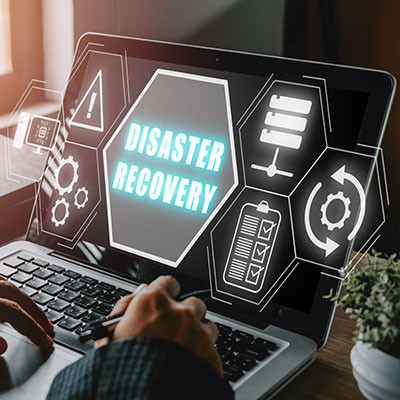Directive Blogs
Why Disaster Recovery Is So Important
Have you ever accidentally deleted a file or had your computer crash? It’s a frustrating experience, right? Now, imagine if a major disaster—like a fire or data breach—struck and wiped out all your critical data. That’s where disaster recovery steps in to save the day.
What is Disaster Recovery?
Disaster recovery is like a safety net for your digital life. It's a plan designed to protect your valuable data and ensure you can access it, even if something unexpected happens. These events can range from minor power outages to significant natural disasters.
Why Disaster Recovery is Crucial for Businesses
Disaster recovery is a critical part of a business’ continuity platform. Here are the main features of a comprehensive disaster recovery platform:
- Protecting customer data - Businesses manage tons of sensitive customer information, such as names, addresses, and credit card details. It's essential to safeguard this data from being lost or stolen.
- Maintaining operations - A disaster can disrupt a company’s operations, leading to financial loss and unhappy customers. A solid disaster recovery plan can minimize these impacts, ensuring that the business continues to run smoothly.
- Preserving reputation - A company’s reputation is one of its most valuable assets. Having a reliable disaster recovery plan demonstrates that a business is prepared for the unexpected and can handle challenges without breaking stride.
How to Protect Your Data
Here are some straightforward strategies to protect yourself:
- Regular backups - Make it a habit to back up your files regularly. Use an external hard drive, cloud storage, or another computer. This way, if your main device fails, you’ll still have a copy.
- Strong passwords - Create strong, unique passwords for all your online accounts. This makes it harder for hackers to access your data.
- Cybersecurity awareness - Educate yourself about common cyberthreats like phishing and malware. Be cautious when clicking on links or downloading files from unknown sources.
- Insurance - Consider cyber insurance to cover potential losses from data breaches or cyberattacks. This can be a crucial safety net in case of severe data loss.
By following these steps, you can significantly reduce the risk of losing essential data.
If you’re interested in learning more about data protection and our approach to disaster recovery, feel free to contact us at 607.433.2200.


